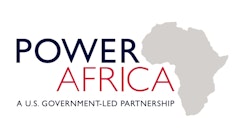
USAID
USAID leads international development and humanitarian efforts to save lives, reduce poverty, strengthen democratic governance and help people progress beyond assistance.
Read more
USAID leads international development and humanitarian efforts to save lives, reduce poverty, strengthen democratic governance and help people progress beyond assistance.
Read more
Power Africa brings together technical and legal experts, the private sector, and governments from around the world to work in partnership to increase the number of people with access to power.
Read moreUniversal energy access is one of the driving forces in alleviating poverty and ensuring sustainable and inclusive economic growth. The IEA World Energy Outlook, however, shows that close to 600 million people remain without access to electricity in sub-Saharan Africa. This number rose in 2020 due to the effect of the COVID-19 pandemic, reversing progress observed in recent years. A delayed recovery would see the number of individuals without access to electricity increase from almost 600 to 630 million by 2030.
The energy access sector is undergoing deep transformations that can help bridge the gap, but there is a pressing need to provide governments with more actionable and pointed tools for integrated electricity planning. Such resources are necessary to make the most of centralized and decentralized solutions, leveraging off-grid private sector-led initiatives such as mini-grid deployment and solar home systems distribution.
These off-grid solutions are essential to provide access to electricity and advance efforts to reach universal energy access by 2030 and the Sustainable Development Goals. Power Africa is drawing on the IEA’s expertise to support governments as they develop improved programs and policies that aim to accelerate electricity access. The grant envisages an approach aiming to:
The IEA will aim to refine and improve electricity access data collection. This will improve the understanding of electricity access tracking and analyses by providing more robust, standardized and comprehensive datasets. It is also expected to drive more informed, focused and impactful policy programs. IEA will undertake this work in up to six countries in sub-Saharan Africa.
The IEA will aim to improve geospatial tools and data for integrated electrification planning, encompassing residential and productive demand for energy and utilize these tools to contribute to improved electricity planning capacities at the government level and more impactful policies to deliver the best route for universal access. IEA will undertake this work in up to three countries in sub-Saharan Africa.
In October 2020, Power Africa awarded the IEA a $1.5 million, two-year Public International Organization grant to implement Power Africa’s Data-Driven Electrification Planning Program.

USAID leads international development and humanitarian efforts to save lives, reduce poverty, strengthen democratic governance and help people progress beyond assistance.
Read more
Power Africa brings together technical and legal experts, the private sector, and governments from around the world to work in partnership to increase the number of people with access to power.
Read moreThank you for subscribing. You can unsubscribe at any time by clicking the link at the bottom of any IEA newsletter.